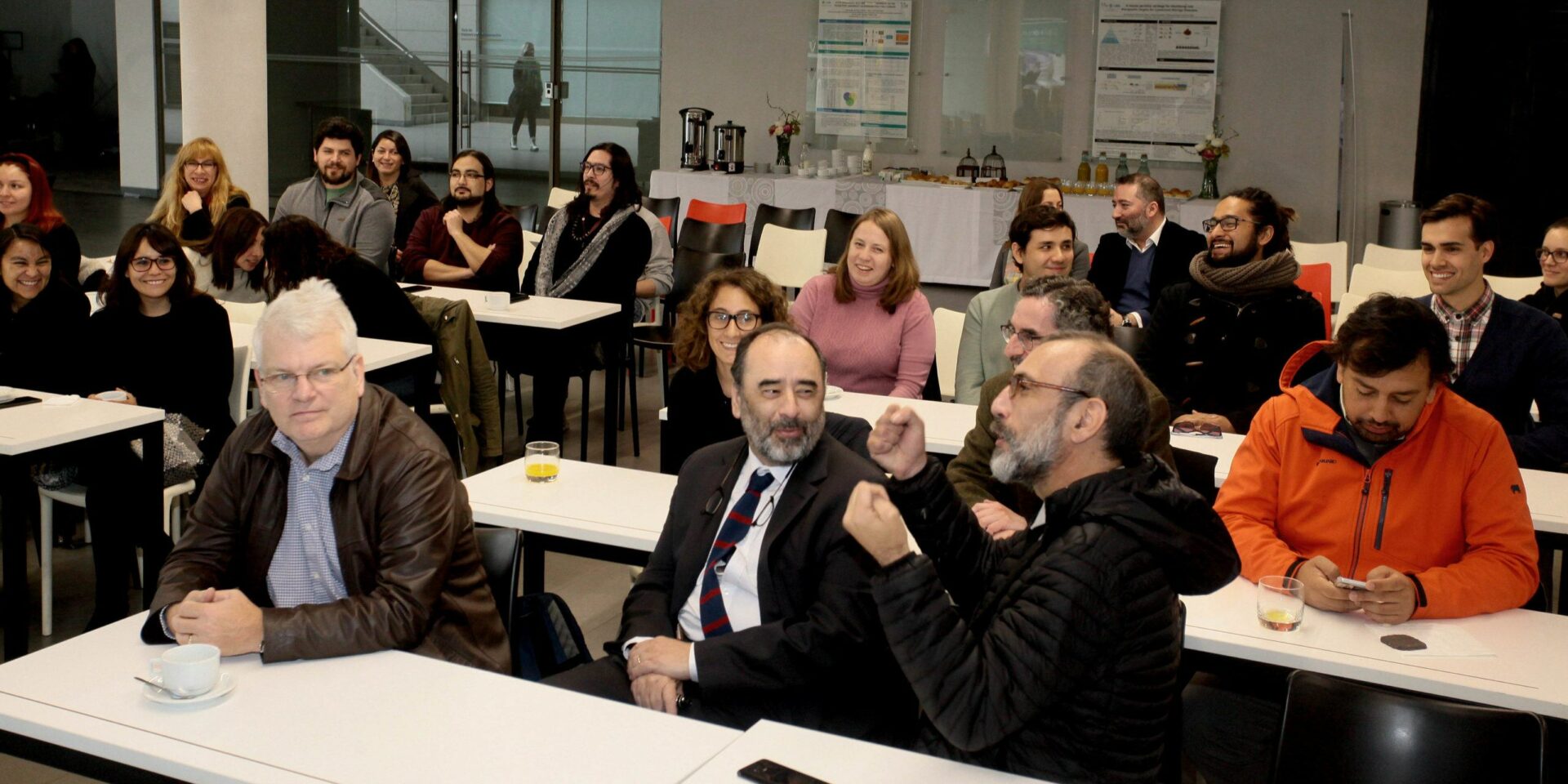
The arrival of Jorge Fábrega, PhD in Public Policy at the University of Chicago, came in a new stage of the program that yesterday received 5 new students. This year the Doctorate in Sciences of Social Complexity (DCCS in spanish) begins its fourth cycle, entering into regime with 20 professionals from different areas formed in the program.

In a ceremony attended by students, professors, authorities and collaborators, the Center for Research in Social Complexity (CICS) welcomed the new Director of DCCS and its fourth generation of researchers. The Dean of the Faculty of Government, Eugenio Guzmán, presented Jorge Fábrega, sociologist, economist and PhD in Public Policy at the University of Chicago, who assumes the head of the program.
The Dean highlighted the commitment of the University del Desarrollo with the Investigation, which is why they invest about 15% of the annual budget in this department. In that sense, Guzmán pointed out that «Jorge has a great challenge, research is not easy because academic activity must prove what it serves, but it needs resources so that it materializes as a product. The University has this commitment, this year we certify for the first time in research, and our Faculty in short time has reached high levels of quality in the matter”.

From this new academic period Carlos Rodríguez-Sickert will be in charge of the direction of the CICS to focus on the task of strengthening the Center and its work of incorporating the social sciences with the natural sciences through a common language: mathematics. As director of the Center thanked to the University «that we have found here the willingness to work collaboratively within the CICS, with other institutions and faculties, such as the Faculty of Government. We are present at the conferences we care about and that is a sign that we are on the right track, it is the responsibility of the new generation to continue on that path now».
Meanwhile, Jorge Fábrega will invest his work in the autonomous research to answer important questions for society, in this regard, he said that «our commitment is to help them do a work towards the community, we do not study for simple personal satisfaction, what we want is that the students of the Doctorate contribute to answer fundamental questions for society, with the highest ethical standard and willingness to learn from the other. There is no better PhD student than the one who teaches professors how to learn from them”.

The five students selected this year are the result of a successful admission process to which 80 people applied. Those are Sebastian Donoso, Bachelor of Science in Physics from the University of Chile; Nicolás Ferrer, Degree in Psychology from the University of Chile; Oriana Figueroa, Licentiate in Psychology of Usach; Eduardo Méndez, BA in Sociology from the University of Chile and Diego Tapia, Biologist with a major in Natural Resources and Environment from the Pontifical Catholic University of Chile.
Diego Tapia reported that «as a biologist you can create models of conservation or preservation, but there are political, economic and social gaps that need to be overcome to implement such projects. Having the tools and knowing the areas necessary to turn that into a planning for, and in the city is my motivation to take the PhD».
From the area of physics, Sebastián Donoso also rescued that in his experience of being a teacher in different regions and conditions, motivated him to make the decision to study and generate a change in public education policies. Oriana, for his part, stressed that the program allows working from the multidiscipline and focusing on evolutionary psychology. «A postgraduate course requires exclusive disposal, to be able to share with your classmates, your teachers and have time to sit down and think about ideas. The CICS gives us this space «, emphasized the psychologist.
The new generation has already begun its classes in the Research Square. The program has an extensive network of international collaborators with prestigious researchers and this year will have Tamas David-Barret, a scientist with a background in evolutionary biology, anthropology and economics, who directs several investigations into the origins and development of humanity’s social behaviors. He will be part of the professors in charge of training the 20 professionals who already joins the Doctorate in Sciences of Social Complexity.